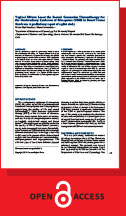Authors: M. Gambacciani, M. Levancini
Published in Ital Jounal Gynaecol Obstet. 2015;27(1):15-17
1. IMPORTANT PILOT STUDY IN A SPECIFIC PATIENT POPULATION
The genitourinary syndrome of menopause (or vulvovaginal atrophy) affects almost half of all postmenopausal women. Because local hormone replacement therapy is contraindicated in women with a history of estrogen-dependent tumors, till now there was no single agent which could ameliorate the quality of life for this patients.
2. MATERIALS AND METHODS
13 postmenopausal women with the presence of GSM and a history of treated breast cancer were treated with Erbium gynecological laser (Fotona, Slovenia). Patients received 3 laser sessions, each 30 days apart. Subjective symptoms (vaginal dryness and dyspareunia) were assessed using a visual analogue scale (VAS) and Vaginal Health Index Score (VHIS) was calculated.
3. RENOVALASE® TREATMENT INDUCES SIGNIFICANT IMPROVEMENT OF GSM
Vaginal dryness and dyspareunia scores were progressively decreased following RenovaLase® treatment. The results were maintained at all follow-ups.
Vaginal Health Index Score (VHIS) was significantly increased after treatment and the results were maintained at all follow-ups. There were no adverse events reported.
4. RENOVALASE® IS EFFECTIVE AND SAFE TREATMENT OF GSM IN POSTMENOPAUSAL BREAST CANCER SURVIVORS
Significant reduction of GSM symptoms in breast cancer survivors is a revolutionary step-up in improving the long-term quality of life of this group of women. More studies in specific post-cancer patients are needed to fully assess the potential of RenovaLase® in specific groups of cancer survivors.




